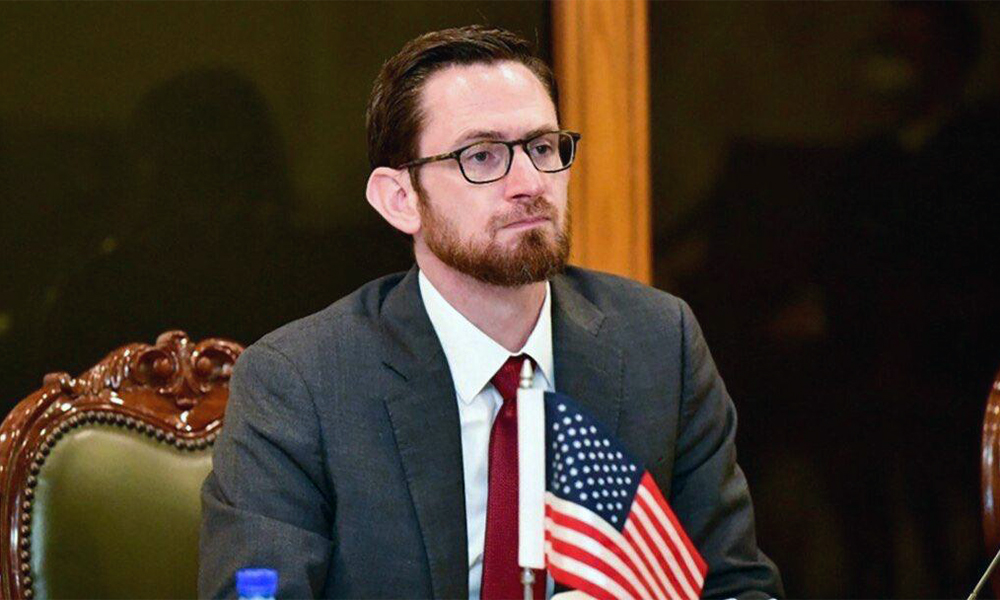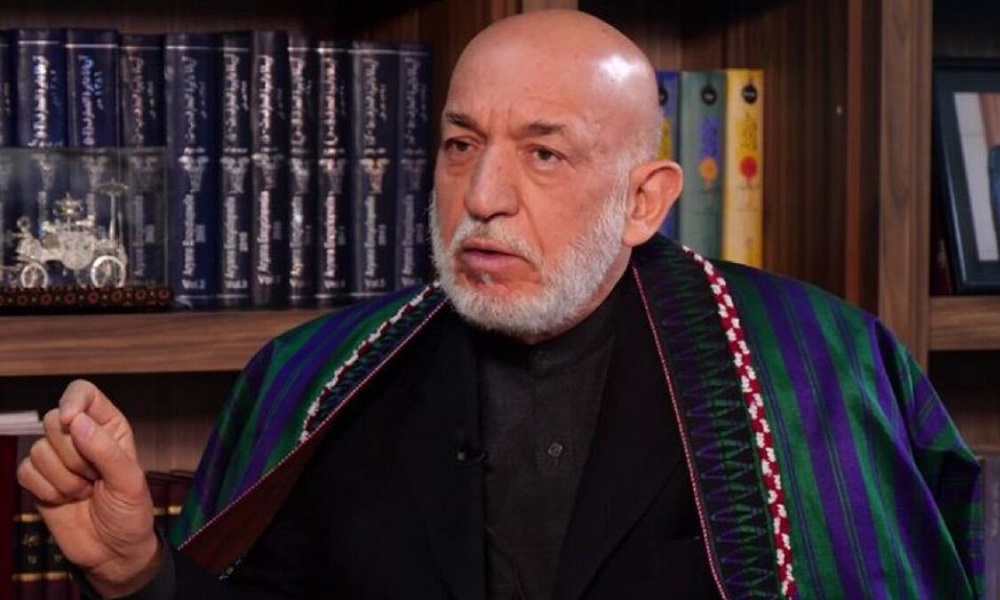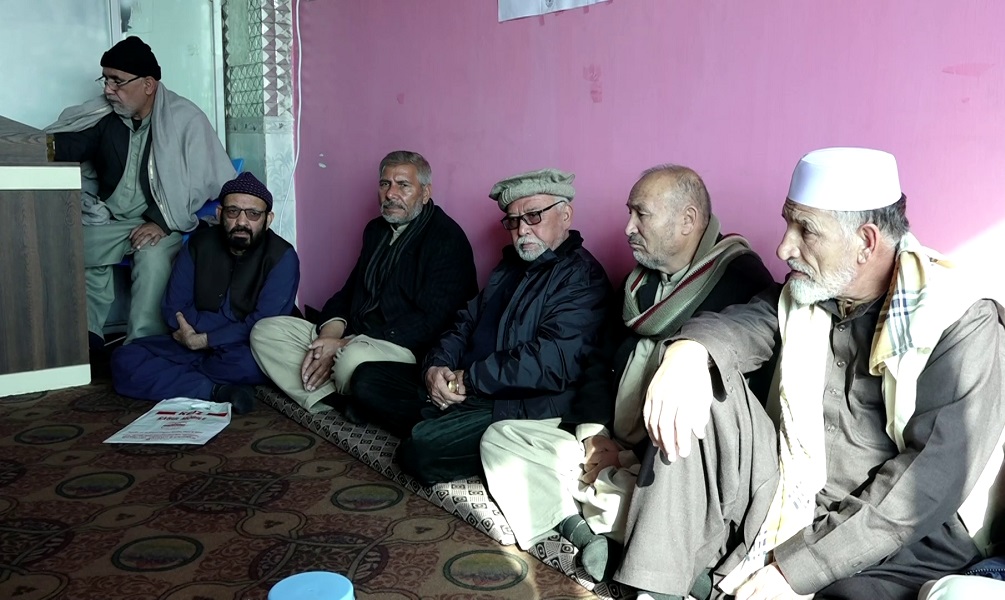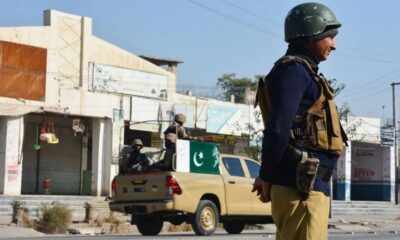Latest News
US special envoy says reports of IEA crackdown on poppies are ‘credible’

US Special Representative for Afghanistan Thomas West said on Wednesday that reports about the Islamic Emirate of Afghanistan (IEA) cracking down on poppy cultivation are “credible and important”.
West said in a tweet that “reports that the Taliban (IEA) have implemented policies to significantly decrease opium poppy production this year are credible and important.
“Every country in the region and beyond has a shared interest in an Afghanistan free of drugs,” he said.
His comments come after the BBC reported on Tuesday that an investigation by the media outlet found a marked decrease in poppy cultivation across Afghanistan this year.
The BBC reported that it traveled in Afghanistan – and used satellite analysis – to examine the effects of a decree issued in April 2022 by the Islamic Emirate of Afghanistan’s (IEA) supreme leader Hibatullah Akhundzada that the cultivation of poppies, from which opium, the key ingredient for the drug heroin can be extracted, was strictly prohibited.
The news outlet stated that IEA leaders appear to have been more successful cracking down on cultivation than anyone ever has.
“We found a huge fall in poppy growth in major opium-growing provinces, with one expert saying annual cultivation could be 80% down on last year. Less-profitable wheat crops have supplanted poppies in fields – and many farmers say they are suffering financially,” the report stated.
Provinces visited by the BBC included Nangarhar, Kandahar and Helmand. Studies of satellite images were also done.
“It is likely that cultivation will be less than 20% of what it was in 2022. The scale of the reduction will be unprecedented,” said David Mansfield, a leading expert on Afghanistan’s drugs trade, who is working with Alcis – a UK firm which specializes in satellite analysis.
Alcis’s analysis shows that poppy cultivation in Helmand has reduced by more than 99%. “The high resolution imagery of Helmand province shows that poppy cultivation is down to less than 1,000 hectares when it was 129,000 hectares the previous year,” said David Mansfield.
Latest News
G7 envoys urge national dialogue for lasting stability in Afghanistan

Special Representatives of the Group of Seven (G7), including the European Union, have emphasized the importance of a national dialogue for achieving long-term stability in Afghanistan.
Following a meeting on Afghanistan in Geneva, Switzerland, G7 special envoys issued a joint statement calling for the restoration of women's rights and urging the Islamic Emirate to fight terrorism.
The statement reads: "Achieving sustainable peace and stability requires credible governance that represents all segments of Afghan society."
The representatives also expressed concern over the IEA’s decision to ban girls from attending medical institutes, warning that it will have devastating consequences for the citizens, particularly mothers and their infants.
The statement described this ban as unacceptable and called on the Afghan authorities to lift it immediately.
Earlier, countries and international organizations had called for the removal of restrictions on the education and employment of women and girls, emphasizing the need for a national dialogue.
In response to these concerns, IEA has repeatedly stated that it will not allow interference in the internal affairs of the country.
The G7 special envoys also expressed their concern about the recent terrorist attacks in Kabul and the surrounding region, warning that terrorism remains a serious threat to Afghanistan's security. They confirmed the actions of the IEA against Daesh but stressed the need for more decisive measures.
Latest News
Afghanistan’s bright future lies in educating girls: Karzai

Hamid Karzai, the former president of Afghanistan, says the demand of Afghan girls for the reopening of schools and universities is their fundamental right and adds that Afghanistan cannot have a bright future without ensuring access to education for girls.
In a statement on his X (formerly Twitter) account, Karzai said: "The demand and voice of our country’s girls for education and knowledge is a rightful one and crucial for a prosperous Afghanistan."
He further emphasized, "Empowering the youth—both girls and boys—is the only way to achieve self-reliance, break the cycle of poverty, and drive the development and prosperity of society."
Karzai underscored that education is vital for Afghanistan’s growth and development, expressing hope that the doors of schools and universities for girls will be reopened as soon as possible.
Latest News
IEA to set up special courts to address pensions

Mawlawi Hebatullah Akhundzada, the supreme leader of the Islamic Emirate of Afghanistan (IEA), has issued a decree to establish special courts to address pensions, Bakhtar news agency reported on Saturday.
According to the decree, the courts must confirm and process pensions in accordance with Sharia and law.
Pensioners have repeatedly voiced concern over delay in payment, saying that their financial challenges are growing.
Earlier this year, IEA's supreme leader banned money being deducted from salaries of government employees for pensions.
He also requested information on the tenure of employees and the total amount deducted from salaries for pensions.
-

 Sport5 days ago
Sport5 days agoLanka T10: All three matches abandoned due to rain
-

 Latest News5 days ago
Latest News5 days agoIndia hoping to import coal and marble from Afghanistan
-

 Sport4 days ago
Sport4 days agoZimbabwe’s opening ODI against Afghanistan abandoned
-

 Latest News5 days ago
Latest News5 days agoFuel prices rise in Herat as winter approaches
-

 Latest News5 days ago
Latest News5 days agoJapan announces $27.5 million aid package to Afghanistan
-

 Latest News3 days ago
Latest News3 days agoTwo horror accidents on Kabul-Kandahar highway leave 52 dead
-

 Latest News1 day ago
Latest News1 day agoAfghan men must stand with women to support viable future of country: US envoy
-

 World3 days ago
World3 days agoNorth Korean troops suffer 100 deaths, struggling in drone warfare, South Korea says
























